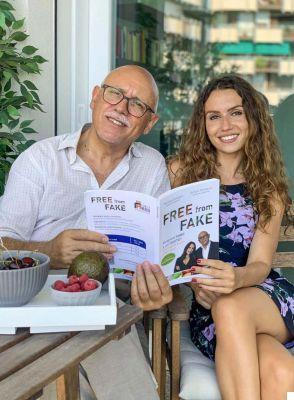
Grandma is a child poisoner. This is the amusing paradox we have come to by dint of false alarms about food. Analyzing with today's eyes a simple recipe like that of Grandmother's cake, which made thousands of grandchildren grow up healthy and happy, the list of what are now called "white poisons" comes out: 00 flour, milk, butter, sugar.
Not to mention the eggs, full of antibiotics. Something is wrong and the doctor is convinced of it Giorgio Donegani, food technologist and historical consultant of Healthyroyale, who on the subject of fake news at the table has just dedicated the book Free from fake, in which he demonstrates how to eat healthy you first need a bit more ... common sense.
More and more fake news are circulating about food: why?
Because it is a theme that takes us to the stomach, in every sense. Today the food market has reached unimaginable levels: in the US alone 22 new products are invented a year and this exasperation of the offer has led to the consequences we all know about the figure and health. Hence the proliferation of diets, many of which are set only on “don't eat this because it hurts you, eat this which is very good for you”. Moreover, without scientific basis and with the sole purpose of doing business. Let's take the Life 120 proposed by Adriano Panzironi: if you eliminate the products of the food industry and eat like cavemen, you will live up to 120 years. But you also have to add expensive supplements sold by the same creator.
How to orient yourself among the many proposals?
With common sense. Today, talking about food is an audience and the web has given everyone a voice. With the aggravating circumstance that it is very difficult for the average public to understand who has the right curriculum to talk about nutrition. Communication has become horizontal, beliefs reinforce each other in social networks and everything, even science, is ideologized. Just ten years ago, if someone went on TV to say the earth is flat they would be considered insane. Today, however, the flat-earthers, on the web, have a following. Just like the Life 120 movement linked to Panzironi.
Is there also a problem of methodology in the search for information?
The first problem lies precisely in what is called "confirmation bias (prejudice)": I think carrots cause a headache, I search on google and among the many results I dwell on the only one that speaks of carrots and ache head, even if he cites the study of a bogus university. Instead, I'll skip everyone who talks about the benefits of carrots. We instinctively seek confirmation of our hypotheses, because it is easier and more immediate than calling them into question. And this also happens in the food sector.
What is the right approach instead?
Thinking that to feel good you just need to eat everything in moderation, prefer fruit and vegetables, do not overdo it with fats and sugars, stop smoking and exercise. It's a bit tiring and on top of that it seems trivial, but it's true. However, it is much more attractive and easier to believe that lactose is the real enemy and that it is enough to remove it from the diet to feel good. Or maybe eat a spoonful of turmeric a day. But what about all the Sardinian centenarians who don't even know what turmeric, quinoa and chia seeds are?
So superfoods are a hoax too?
They are products with excellent nutritional qualities, but it makes no sense to include them in our diet based on the "magic thought" that they will save us. It took the populations millennia to adapt their diet to the territory, we have everything we need even without disturbing the populations in the Andes. Also because it is necessary to know that the high demand for exotic superfoods has triggered the usual speculative mechanisms: in Bolivia, for example, quinoa is now treated with pesticides to ensure more abundant harvests and thus be able to satisfy the exponentially growing market demand.
As a food technologist, how do you assess the role of companies in all of this?
Curiously, many ride the "anti-industrial" sentiment rather than insisting on the goodness of their products. There are companies that have made food and cultural history in the country and that work with extreme safety. Yet, for fear of losing the market, they come to admit faults they do not have. Is everyone convinced that palm oil is a poison? Let's get it out of the cookies. Does the web say that gluten is also bad for non-celiacs? Here are many new gluten free products. But in this way they do nothing but reinforce mistrust (triggered by the fateful question “So before they poisoned us?”) And fuel distrust of scientific institutions. Instead, they should be listened to more. Just think of the Larns, the "Reference levels of nutrient and energy intake for the population of the country": they have only scientific basis and they already say everything you need to know to stay healthy. But they don't make an audience.
There is a solution?
Go back to our ancient nutritional wisdom. We all have one, we all know exactly what is good for us (healthy, good quality foods) and what is bad for us (excesses). Trusting trends is never a good idea: a new superfood will not extend our life and a slice of grandma's cake will not poison us.
Without or with
Supermarket shelves are filled with lactose-free, gluten-free, palm oil-free, sugar-free, fat-free, egg-free, salt-free products. But what is really to put in the cart? To help consumers understand when all this "without" is just "nonsense", Dr. Giorgio Donegani wrote together with his daughter Martina, a nutrition biologist, the guide Free from fake (BioMedia, € 12,50). The main foods in the dock are analyzed in the light of science, exposing many false myths.
SOME "BUFFALO" TO BE DISMISSED
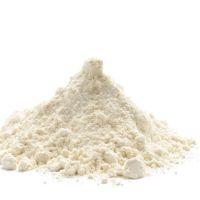
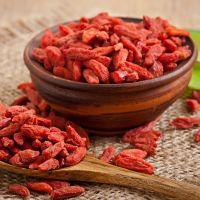
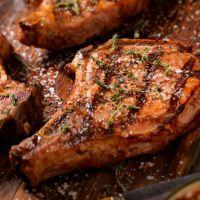
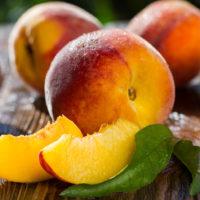

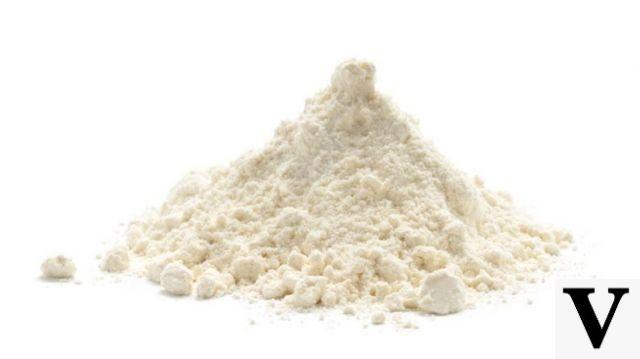
1. White flour is to be avoided
What they say: it has a high glycemic index and is poor in nutrients, as opposed to the integral one. Actually: digesting whole wheat is more difficult and its fibers contain substances, such as oxalic acid, which hinder the absorption of calcium and iron. Furthermore, accompanying bread and pasta with meat, vegetables or even just olive oil already lowers the glycemic index.
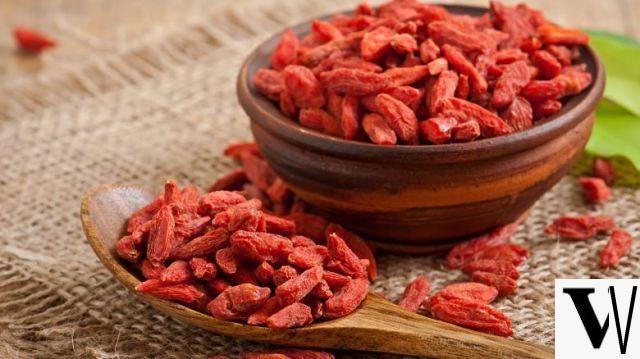
2. Goji berries prevent Alzheimer's
What they say: they have a concentrate of antioxidants capable of fighting degenerative diseases, starting from Alzheimer's. In fact: There are no human studies demonstrating these specific properties. Goji berries are an excellent natural source of antioxidants, vitamins and minerals like so many other fruits and vegetables.
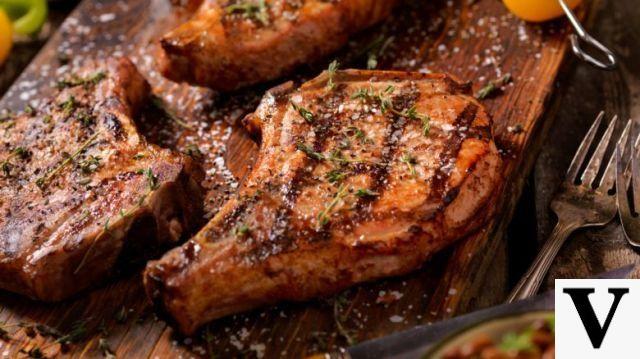
3. Pork is too fat
What they say: it is full of cholesterol. In reality: it is very different from the past due to the effects of interventions both on the crossbreeding of the races and on the formulation of feed and farming systems. The ratio of saturated ("bad") and unsaturated ("good") fats has thus improved and the cholesterol content is no different from that of beef, veal and chicken.
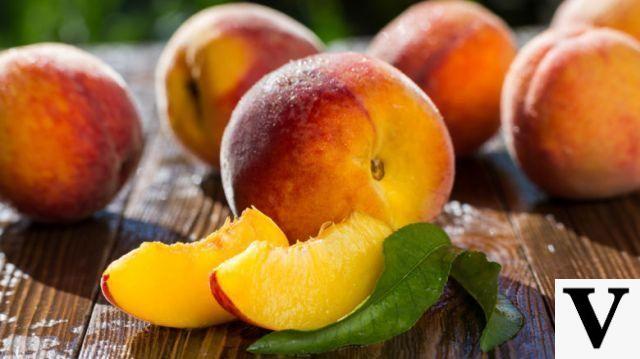
4. Fruit at the end of a meal is not good
What they say: makes you fat, complicates digestion, swells the belly. Actually: fruit is always good for you. In addition, the presence of vitamin C improves the absorption of plant-based iron and the sugars present in it are absorbed more slowly than when eaten as a snack. Papaya and pineapple also have many enzymes that facilitate the digestion of proteins.


























